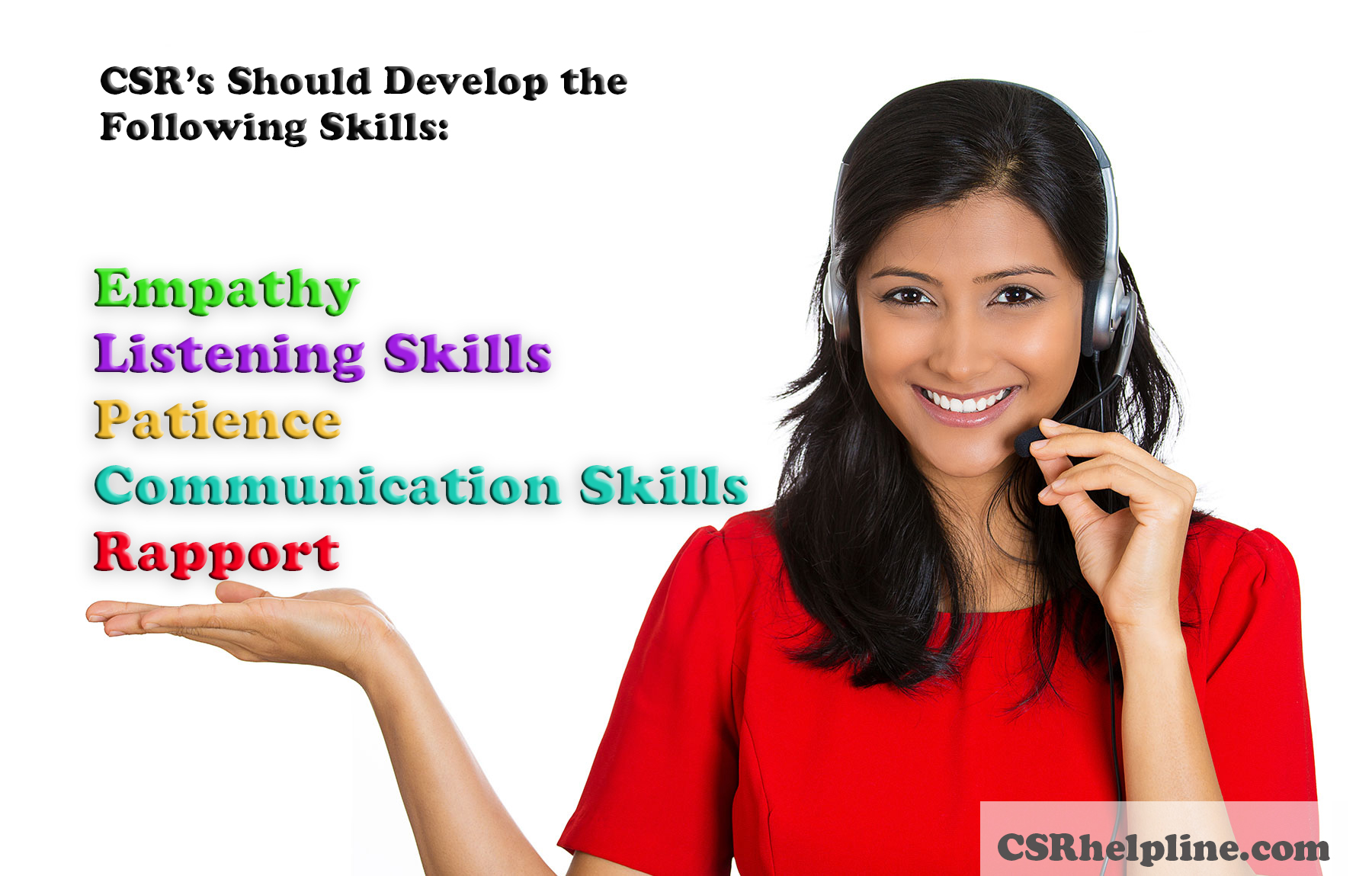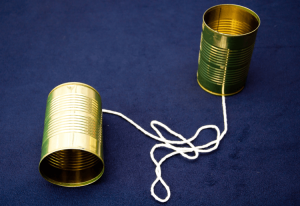 EMPATHY
EMPATHY
The definition of empathy is uncomplicated. It is the ability to put yourself in someone else’s shoes. That’s it. If more people could do that, the world would definitely be a better place. In my opinion, this is probably one of the most important skills that you should develop. Imagine yourself on line with someone in customer service and having them ignore you, not listen to you and just treating you badly in general. Those are the times when you wish that someone would just treat you the way that they would want to be treated. That is the core of empathy. Something that is very simple, yet people fail to show it on a daily basis.
Developing empathy for customers is important. It shows clients that you’re not unfeeling and robotic as some CSR’s act at times. It helps to build customer loyalty and strengthens the relationship between the company you work for and their clients. Most importantly though, it shows that you care, which is all that customers really want sometimes.
LISTENING SKILLS
Do you know what one of my biggest pet peeves are? People who don’t listen. Now don’t get me wrong, I understand that sometimes due to distractions and human error, someone that you’re talking to just may not hear what you had to say. I’m not talking about those situations. I’m talking about people who’s mind just starts to wander as you’re talking to them. We’ve all talked with someone like that, haven’t we? Their eyes start to glaze over and you can tell that they’re in another place. I wonder, where do they go when they so rudely tune you out? Maybe they’re thinking about dinner, or errands they need to run, or maybe what they’re going to be doing for the weekend. When I notice I’m talking to someone like that, I’ll usually just stop talking all together, wait and smile until they come back to reality. That’s when they look back at you with a blank stare and go “Oh, sorry…what were you saying?”
I’m pretty sure my low tolerance for people who don’t listen stems from being in customer service for so many years. Our entire job consists of listening to others from the time our work day begins and until it ends. If a customer feels as though you’re not paying attention to what they have to say, it can give them the wrong impression of not only you, but the entire company as a whole. It may even cause them to decide to take their business elsewhere. To avoid all of that, really listen to what a customer is telling you about their issue. They may even be vague in what they’re saying initially. If that’s the case, read between the lines and ask probing questions in order to get to the bottom of the problem.
PATIENCE
Have you ever called a place of business and the service rep on the other end of the line tries to rush you, like they have someplace else to be? They’re often curt and may even interrupt you in mid sentence, as if they know what you’re going to say BEFORE you say it. They’re like, “Uh huh…yeah, okay. Sure. Let me transfer you!” and before you know it, you’re on your way to only God knows where and haven’t even really gotten into why you’re calling in the first place. That’s what happens when reps began to lose their patience with customers. This is bad for business on so many different levels.
When a customer calls upset, frustrated and looking for assistance, it’s up to us to take the time to find out what it is that they need. Some inquiries take longer than others. But if I were a customer, I’d want that rep to take the time that was needed to assist me with great service. Keep in mind, this doesn’t mean sit down and have a coffee with them, talk about the wife and kids, and chat about last week’s game. It means taking your time to get to the issue, leaving the customer happy and satisfied, and moving on to help the next customer.
COMMUNICATION SKILLS
People often say they have strong communication skills, but they take for granted what that really means. It means you are able to convey information to others in a clear and simple way. It also means you are able to express your thoughts verbally and in written form.
 Being able to communicate is crucial, not only in the workplace, but in our everyday lives. As a CSR, are you able to ask questions, learn new things and give and understand instructions without difficulty? These are all things that are necessary when sharing information with others. It is extremely frustrating to a customer that can’t understand or get clear answers from a CSR when calling for information.
Being able to communicate is crucial, not only in the workplace, but in our everyday lives. As a CSR, are you able to ask questions, learn new things and give and understand instructions without difficulty? These are all things that are necessary when sharing information with others. It is extremely frustrating to a customer that can’t understand or get clear answers from a CSR when calling for information.
Here’s a perfect example. I called my local vet and asked them what their hours of operation were. Seems like a simple enough question, right? The receptionist gave me the hours, I thanked her, and the call was over. When I decided to take my pet to their office, I planned the time around the hours that I was given. When I got there, the doctor was closing up, telling me the hours had changed due to the holiday season. Obviously the receptionist knew this because she wasn’t there. I not only had to reschedule my appointment, but was told by the receptionist during my next visit that I must have gotten my hours wrong. According to her, she definitely gave me the new hours. So not only did she not convey the information to me that I needed, she blamed me, the customer, for the mistake. Needless to say, my pet and I never stepped foot in their office again. But the point is, clear and concise communication is one of the keys to customer loyalty. It can make or break a company as well as your employment status.
RAPPORT
We live in a world filled with the cold touch of technology. But sometimes nothing can take the place of the warmth of a human.
Whenever I call my local pharmacy, I often hope that I’ll speak to “Suzie.” I really appreciate her service. Being a CSR myself, I often take notice of how other reps handle their calls. Suzie is undeniably charming whenever we speak. She’s patient and engaging. She makes you feel as if she’s holding your hand with every issue that you have, and really listens to what you’re saying. If she doesn’t know the  answer, you can feel confident that she will take the time to find the answer. You can really believe her when she tells you things and trust that she will follow through with your requests. I genuinely like her. And she has definitely mastered building rapport with customers on the phone.
answer, you can feel confident that she will take the time to find the answer. You can really believe her when she tells you things and trust that she will follow through with your requests. I genuinely like her. And she has definitely mastered building rapport with customers on the phone.
The definition of rapport is: “A sympathetic relationship or understanding.” It is basically every aforementioned skill all rolled up into one. Empathy, patience, good communication skills and listening all help to build rapport with customers. Personally, I add a little politeness along with a mild-mannered tone and it’s enough to win most customers over.
Thank you so much for letting me share some information with you that I hope will help you with your job. Be on the lookout for another post that will go into greater detail about how you can really build rapport with customers.
“Unless you have 100% customer satisfaction, you must improve.” –Horst Schulz

Leave a Reply